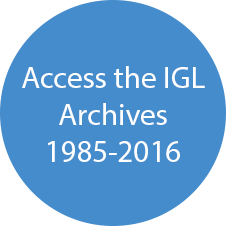EPIIC Spring 2017: Order and Chaos: Diplomacy and Force in a Changing World
EPIIC 2016-17
Order and Chaos: Diplomacy and Force in a Changing World
EXP 0091F
Tuesdays/Thursdays, 3:00-5:30pm, Crane room, Paige hall
as well as mandatory, bi-monthly discussion sessions
SPRING TERM
SYLLABUS
(in progress)
PART I: Introduction, Tools and Diagnosis
Thursday, January 19
Introduction: Populism and the Threat to the Liberal Order
Lecturer: Manuel Muñiz, Lecturer, Tufts University
Dr. Muñiz is the Director of the Program on Transatlantic Relations at Harvard University’s Weatherhead Center for International Affairs. He is a local affiliate of the Minda de Gunzburg Center for European Studies and an elected member of the Alumni Board of Directors of the Kennedy School of Government, both at Harvard University. Dr. Muñiz’s research interests fall within the fields of innovation and disruption, geopolitics, and regional and global governance. He has done research on processes of cooperation and integration in Europe and the North Atlantic as a means of understanding how states tackle interdependence and complexity.
As Rafael del Pino Professor of International Relations and the Director of the Program on Global Leadership at the Rafael del Pino Foundation, one of Spain’s leading philanthropic institutions dedicated to nurturing talent through education, Dr. Muñiz’s work seeks to foster Spanish leadership in the field of global affairs. His work for the Foundation includes the organization of high-level seminars at Harvard University and the University of Oxford, delivering and chairing conferences and lectures in Spain, and the awarding of fellowships for the funding of study and applied research. He holds a JD from the Complutense University in Madrid, an MSc in Finance from the IEB, a Master in Public Administration from the Kennedy School of Government, and a DPhil (PhD) in International Relations from the University of Oxford. He is also a holder of a number of awards and recognitions including the Trilateral Commission’s David Rockefeller Fellowship and the Atlantic Council’s Millennium Fellowship.
Readings:
- DeLong, B. (2015). “Making Do With More”, Project Syndicate, February.
- Dobbs, R., et al. (2016). “Poorer than their parents? A new perspective on income inequality”, McKinsey Global Institute Report.
- Foa, R.S., Mounk, Y. (2016). “The Democratic Disconnect”, Journal of Democracy, 27(3), July.
- Keynes, J. M. (1930). “Economic Possibilities for our Grandchildren”, Essays in Persuation, Nueva York. W.W. Norton & Co., pp. 358-373
- Kurzweil, R. (2005). The Singularity is Near: When Humans Transcend Biology, edición 2008, Londres. Duckworth Overlook
- Meyer, R. (2016). “Donald Trump Is the First Demagogue of the Anthropocene”, The Atlantic, October.
- Muniz, M. (2016). “Brexit and the Anti Elite Era”, Europe’s World, June.
- Muniz, M., Navazo, B. (2016). “Brexit and the Perverse Geopolitics of Leaving the European Union”, The New Atlanticist, July.
- Muniz, M. (2016). “Populism And The Need For A New Social Contract”, Social Europe, October.
- Picket, K., Wilkinson, R. (2010). The Spirit Level: Why Equality is Better for Everybody, London: Penguin.
- Rodrik, D. (2015). “From Welfate State to Innovation State”. Project Syndicate, January.
- Soros, G. (1997). “The Capitalist Threat”. The Atlantic, February.
- Summers, L. (2016). “The Age of Secular Stagnation: What It Is and What to Do About It”. Foreign Affairs, February.
Tuesday, January 24
Understanding the Populist Revolt: Anti-System Sentiment, Globalization, and the New Politics
This lecture will explore the origins of the populist revolt against liberal democratic values, and its implications for domestic and international politics in the world today. Most political scientists believe that the stability of democracy is assured once a set of threshold conditions – prosperity, democratic legitimacy, the development of a robust civil society – is attained. Democracy, it is claimed, has then become consolidated, and will remain stable. During the 1990s in particular, theories of democratic consolidation argued that democratic, and in particular, liberal democratic beliefs and values would steadily consolidate their influence over established and emerging democracies.
However, just as liberal democracy can come to be “the only game in town” through processes of democratic deepening and the broad-based acceptance of democratic institutions, so too a process of deconsolidation take place when citizens sour on democratic institutions, become more open to illiberal alternatives, and start to vote for anti-system parties. Survey indicators show that in both established and emerging democracies, distrust of democratic institutions, skepticism of global governance, and anti-establishment semtiment have been rising for several decades, resulting a new political cleavage between "illiberal democracy," as represented by the new populist movements, and the "undemocratic liberalism" of established liberal parties and the international institutional order.
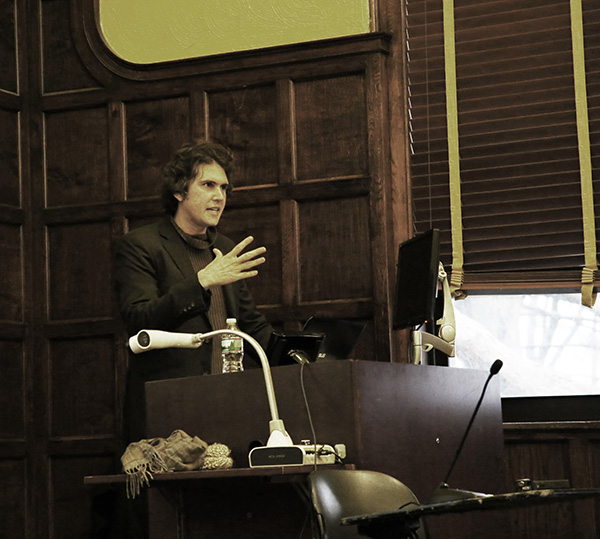 Guest Lecturer: Roberto Foa, University of Melbourne
Guest Lecturer: Roberto Foa, University of Melbourne
Roberto is Lecturer in Political Science in the Social and Political Sciences at the University of Melbourne. He completed his Ph.D. at the Department of Government of Harvard University in 2016. His research interests centre on how institutions vary across the world, and why these patterns of variation prove so persistent and resistant to change over time. As a Principal Investigator of the World Values Surveys, he has published articles on quality of government, democratic transition, comparative social indicators, social trust, and patterns of global civil society, and conducted fieldwork in Central Asia, India, and Africa. He is also interested in political methodology, in particular global survey research, index construction and design, and geospatial analysis. His academic publications have appeared in journals such as Governance and the Journal of Democracy, and his non-academic publications in outlets including the New York Times, Vox, and the Financial Times.
Readings:
- Fukuyama's original essay on the End of History: Available online
-
Mounk’s and Foa’s essays (2) on the decline of democracy: http://www.journalofdemocracy.org/sites/default/files/Foa%26Mounk-27-3.pdf
http://www.journalofdemocracy.org/sites/default/files/02_28.1_Foa%20%26%20 Mounk%20pp%205-15.pdf - Jans-Werner Mueller on populism:https://www.princeton.edu/~jmueller/Constellations-Populism-JWMueller- March2014-pdf.pdf
Listen to the Audio Recording of this Lecture
Thursday, January 26
Applied History for Decision-Makers: What can the Past tell us about the current Global Turmoil?
The past is never dead. In fact, most of the times it is not even past. The world of today is the result of a complex of historical processes and dynamics whose study can help us to better understand the current global turmoil and anticipate some of its possible outcomes. The goal of this lecture is to provide students with the basics to undertake such analysis. In the first part we will examine some of the large-scale structural, dynamic, or systemic theories of change formulated by men since the Antiquity, aimed at explaining and predicting the rise and fall of civilizations, the development of societal transformations and political disruptions. In the second part of the lecture we will see how these theories could be apply to the analysis of current global affairs and and shed some light on the rising uncertainty that lays ahead us.
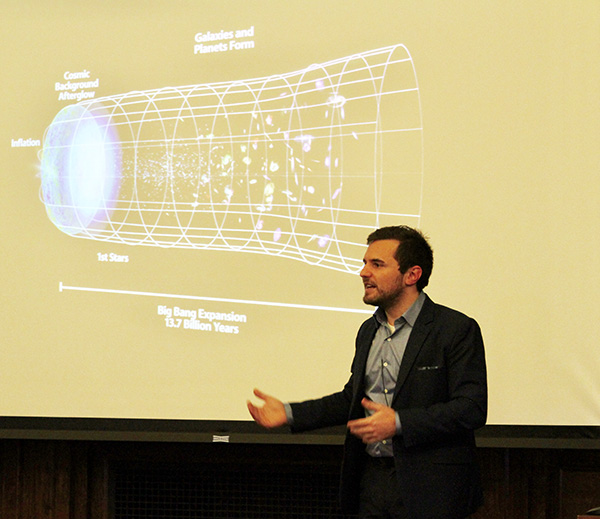 Guest Lecturer: Diego Rubio, Oxford University
Guest Lecturer: Diego Rubio, Oxford University
Diego Rubio is a historian and policy analyst based at the University of Oxford. He holds a Junior Research Fellowship at The Queen's College and memberships at the History Faculty and the Department of Politics and International Relations. He is also an associate researcher of the Oxford Center for Global History and the Higher Education Academy of the United Kingdom, and he has worked as advisor to the United Nations and the Ibero-American General Secretariat. His research falls within the fields of History of Political Thought and Applied History, with an special focus in improving policy and decision making through a better use and understanding of historical knowledge.
Diego holds a PhD in History of Political Thought from the University of Oxford, a MA from the École Normale Supérieure and a BA from the Autonomous University of Barcelona. He has been visiting scholar at a number of universities, including Paris IV Sorbonne and Columbia in NYC.
Readings:
- Graham Allison and Niall Ferguson, ‘Why the U.S. President Needs a Council of Historians’, The Atlantic, 2016.
- David Armitage and Jo Guldi, The History Manifesto, Cambridge: Cambridge University Press, 2014.
- Hal Brands and Jeremi Suri, The Power of the Past, Washington, DC: Brookings, 2016.
- Fredrik Logevall and Kenneth Osgood, ‘Why Did We Stop Teaching Political History?’, New York Times, 2016.
- Jon Meacham, ‘Andrew Jackson’s Lessons for Donald Trump’, TIME, 2016.
- Cas Mudde, ‘Europe’s Populist Surge’, Foreign Affairs, 2016.
Listen to the Audio Recording of this Lecture
Tuesday, January 31
Post-Truth Politics: lessons from the Past, options for the Future
Post-Truth has become the mainstream narrative to explain the latest political disruptions such as the rise of Donald Trump and the victory of Brexit in the British EU referendum. However, the Post-Truth idea has a number of flaws and misconceptions that can lead us to the wrong understanding of current situation. In this lecture we will address some of them.
We will study the historical evolution of this phenomenon, from Ancient Greek democracy to present times. We will analyze some of the changes brought by the 21st century: from the multiplier and self reinforcing effect of the digital media and social networks, to the multiplication of truths driven by postmodernity. Finally, we will assess the the need to rebuild the old gatekeepers (academia, media, public institutions), strengthen citizenship’s critical thinking, and change the way in which politicians and experts communicate with the public, as solutions to counter the spread of political lies, stop the current rise of populisms and avoid further turmoil.
Guest Lecturer: Diego Rubio, Oxford University
Readings:
- ‘The post-truth world’, The Economist, 2016.
- Hannah Arendt, ‘Truth and Politics’, in Between past and future, New-York: Penguin, 1968.
- Lionel Cliffe, Maureen Ramsay, and Dave Bartlett, The Politics of Lying Implications for Democracy, London: Palgrave Macmillan, 2000.
- Ralph Keyes, The Post-Truth Era: Dishonesty and Deception in Contemporary Life, 2004.
- John J. Mearsheimer, Why Leaders Lie: The Truth about Lying in International Politics, New York: Oxford University Press, 2011.
- Steve Richards, ‘Brexit, Trump: the trouble with claiming we’re in a post-truth era’, The Guardian, 2016.
Listen to the Audio Recording of this Lecture
Thursday, February 2
The elusive quest for jobs in the 21st century: education, technology and trade
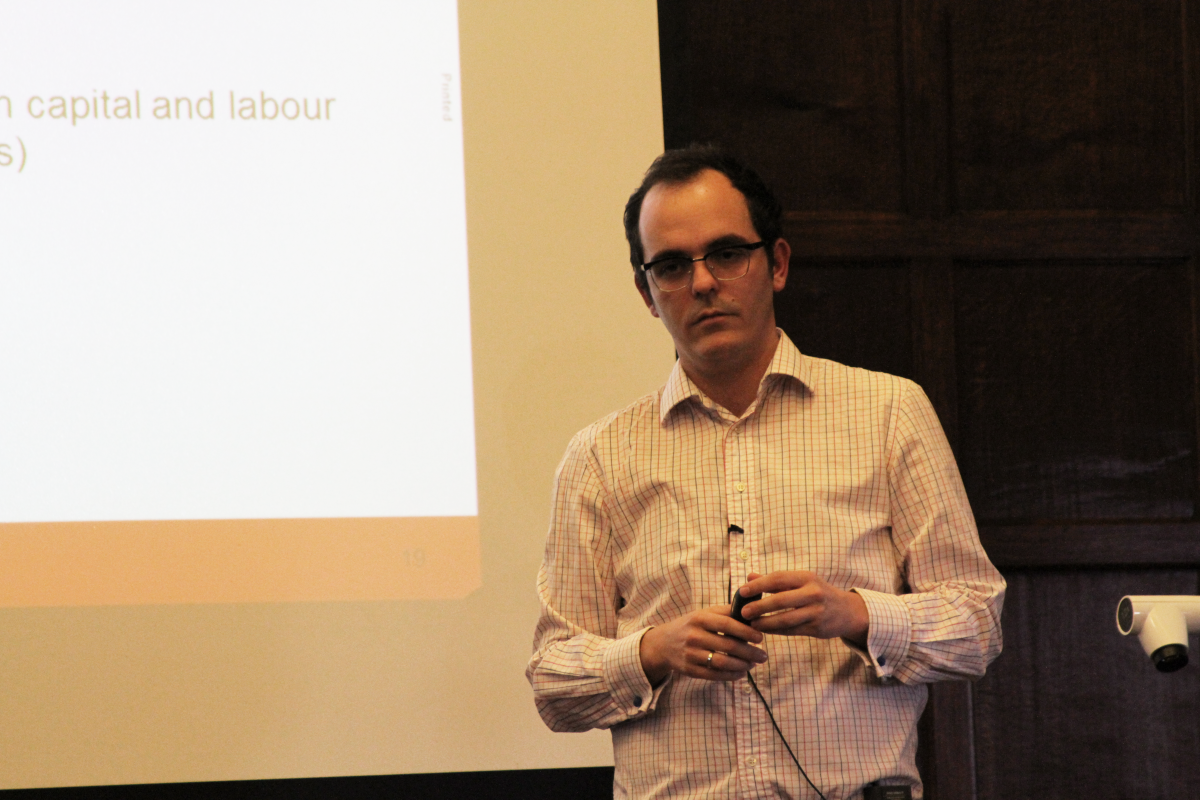 Guest Lecturer: Carlos Lastra-Anadon, Harvard University
Guest Lecturer: Carlos Lastra-Anadon, Harvard University
Carlos X. Lastra-Anadón is a PhD candidate in Government and Social Policy at Harvard University. Prior to this, he worked as a consultant, specializing in public education system reform, at McKinsey and Company. His scholarly work so far has focused on the effects of different organizational structures of education systems, the enduring effects on outcomes of differences between urban, suburban and rural districts, as well as the effect of the Great Recession on attitudes towards education policy. He is a fellow of the Tobin Project, Harvard’s Inequality and Social Policy Program and Spain’s Ramón Areces Foundation.
Readings:
- Golding, C. and Katz, L. (2008): The race between education and technology, Introduction and Chapter 1. Belknap press.
- Frey, C.B., Osborne, M.A. (2017): "The future of employment: How susceptible are jobs to computerization?”, in Technological Forecasting and Social Change 114. Available on http://www.oxfordmartin.ox.ac.uk/downloads/academic/The_Future_of_Employ ment.pdf
- Krugman, P. (2016): "Trade and Manufacturing Employment: No Real Disagreement” Available on https://www.gc.cuny.edu/CUNY_GC/media/LISCenter/pkrugman/Trade-and- Manufacturing-Employment.pdf
Listen to the Audio Recording of this Lecture
Thursday, February 7
Populist Economics
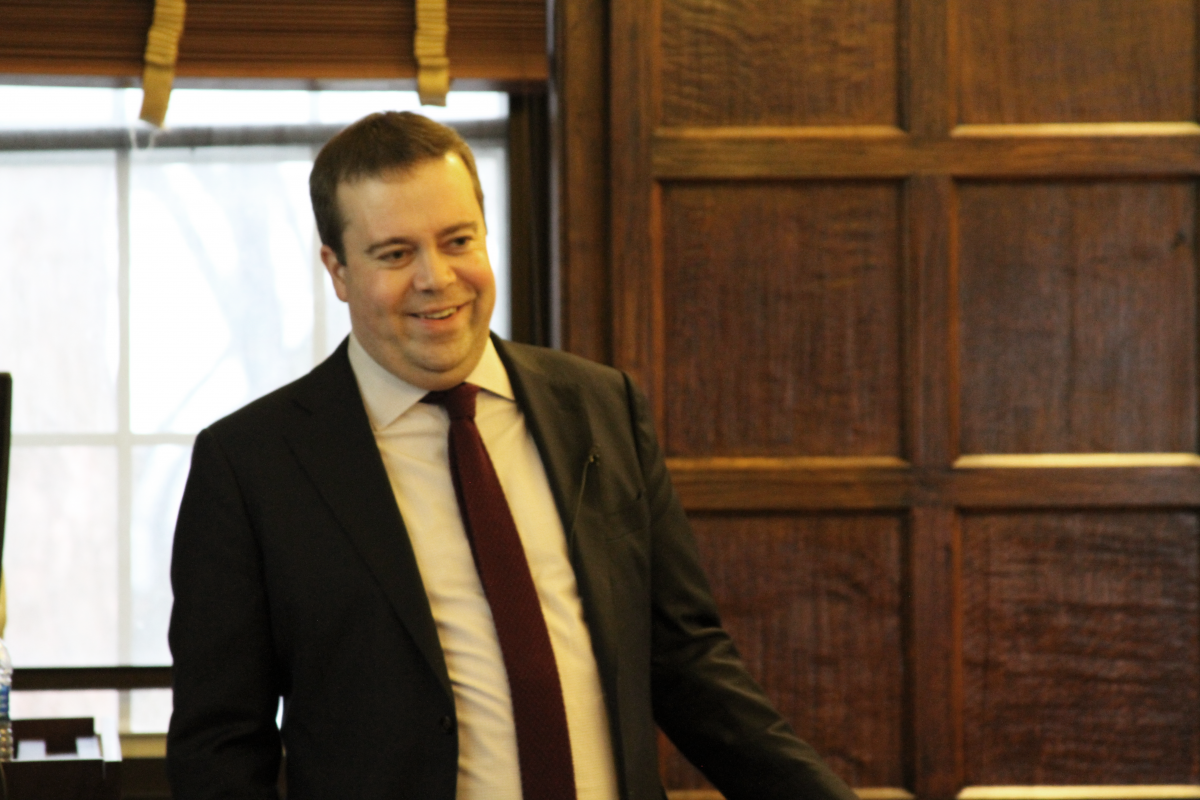 Guest Lecturer: Stan Veuger, American Enterprise Institute
Guest Lecturer: Stan Veuger, American Enterprise Institute
Stan Veuger is a resident scholar at the American Enterprise Institute (AEI), where his research is in political economy and public finance. He is also the editor of AEI Economic Perspectives.
Dr. Veuger’s research has been published in leading academic and professional journals, including the Journal of Monetary Economics, the Oxford Bulletin of Economics and Statistics, and the Quarterly Journal of Economics. He is the editor, with Michael Strain, of Economic Freedom and Human Flourishing: Perspectives from Political Philosophy (AEI Press, 2016).
He also writes frequently for general audiences on economics, politics, and popular culture. His writing has appeared in the Los Angeles Times, the National Interest, the New York Times, USA Today, and US News & World Report, among others.
Dr. Veuger was a visiting lecturer of economics at Harvard University for the 2016 fall term. He serves as a board member of the Altius Society and as the chairman of the Washington, DC, chapter of the Netherland-America Foundation.
He received a PhD and an AM in economics from Harvard, and an MSc in economics from Universitat Pompeu Fabra. He completed his undergraduate education at Utrecht University and Erasmus University Rotterdam.
Readings:
- Dornbusch, Rudiger, and Sebastian Edwards, “The Macroeconomics of Populism,” in Dornbusch, Rudiger, and Sebastian Edwards (ed.), The Macroeconomics of Populism in Latin America, 7-13. Chicago: University of Chicago Press, 1991.
- Feldstein, Martin. 2013. "An Interview with Paul Volcker." Journal of Economic Perspectives, 27(4): 105-20.
- Kaufman Robert R., and Barbara Stallings, “The Political Economy of Latin American Populism,” in Dornbusch, Rudiger, and Sebastian Edwards (ed.), The Macroeconomics of Populism in Latin America, 15-43. Chicago: University of Chicago Press, 1991.
- Lansberg-Rodríguez, Daniel, and Stan Veuger, “How Oil Killed Venezuela’s ‘Chavismo,’” The National Interest, December 14, 2015.
Listen to the Audio Recording of this Lecture
Tuesday, February 9
The Economics of Populism
Guest Lecturer: Stan Veuger, American Enterprise Institute
Readings:
- Autor, David H., David Dorn, and Gordon H. Hanson (2013) “The China Syndrome: Local Labor Market Effects of Import Competition in the United States,” American Economic Review 103(6): 2121-2168.
- Autor, David H., Lawrence F. Katz, and Melissa S. Kearney (2006) “The Polarization of the U.S. Labor Market,” American Economic Review 96(2): 189- 194.
- Boehm, Michael, “Job Polarisation and the Decline of Middle-Class Workers’ Wages,” VOX: CEPR’s Policy Portal, February 8, 2014.
- Borjas, George, “Yes, Immigration Hurts American Workers,” Politico Magazine, September/October, 2016.
- Casselman, Ben, “Stop Saying Trump’s Win Had Nothing to Do with Economics,” FiveThirtyEight, January 9, 2017.
- Di Tella, Rafael, and Julio J. Rotemberg (2016) “Populism and the Return of the “Paranoid Style”: Some Evidence and a Simple Model of Demand for Incompetence as Insurance against Elite Betrayal,” NBER Working Paper 22975.
- Hanson, Gordon and Craig McIntosh (2016) "Is the Mediterranean the New Rio Grande? US and EU Immigration Pressures in the Long Run," Journal of Economic Perspectives 30(4): 57-82.
- Madestam, Andreas, Daniel Shoag, Stan Veuger and David Yanagizawa-Drott (2013) “Do Political Protests Matter? Evidence from the Tea Party Movement,” Quarterly Journal of Economics 128(4): 1633-1685.
- “Trade in the balance,” The Economist, February 6, 2006.
Tuesday, February 14
Populism, Democracy and Liberalism: A European Perspective
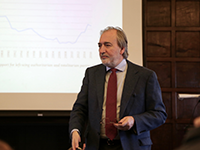 Guest Lecturer: Jose Maria Beneyto, Pierre Keller Visiting Professor, Harvard Kennedy School of Government
Guest Lecturer: Jose Maria Beneyto, Pierre Keller Visiting Professor, Harvard Kennedy School of Government
Prof. Beneyto is an academic, an international lawyer, a politician and a writer. He studied Law, History, Philosophy and Economics and obtained his J.D. in Spain, an LL.M. from Harvard Law School, and a Ph.D. in Law and Ph.D. in Philosophy and History from the University of Münster (Germany), as well as a Business and Economics Degree from IESE Business School.
He is a Professor of European Law and Politics, International Relations and International Law, a Jean Monnet Chair ad personam of the EU and the Director of the Institute for European Studies in Madrid. He has published extensively on European Union constitutional development, EU foreign policy, energy, telecoms and financial sector regulation, international law, EU political theory, global governance, international organizations and human rights.
He has been practicing law over twenty years, with a focus on corporate law, (M&A), antitrust law and international arbitration. He was also a Civil Servant of the European Institutions and an advisor to the European Parliament, the European Convention, the OCDE and the World Bank. As a politician, he was until 2016 a member of the Spanish Parliament (Spokesman for Foreign Affairs), Vice Chair of the Parliamentary Assembly of the Council of Europe and Chair of its Committee on External Relations.
He has published two novels. “The elements of the world” is a historical novel based on the German jurist and political theorist Carl Schmitt set in the period from 1919 to 1945, and which was a Premio Primavera de Novela finalist in 2009. His second work of fiction, “The spy who fooled Hitler”, appeared in June 2016 and is being translated into various languages. He speaks Spanish, English, German, French and Italian.
Readings:
- Jan-Werner Müller: What is populism?, Penn Press, 2016, pp. 75-103.
- "France's new revolution? A Conversation with Marine Le Pen", Foreign Affairs, November/December 2016, pp. 2-8.
- Cas Mude: Europe's populist surge, pp. 25-30 (in the same issue of Foreign Affairs).
Listen to the Audio Recording of this Lecture
Thursday, February 16
No Class: Symposium Prep
Tuesday, February 21
No Class: TILIP Students Arrive
Thursday, February 23 – Sunday, February 26
PART II: Consequences of the Populist Unpheaval
Tuesday, February 28
European Social Democracy and the Populist Challenge
 Guest Lecturer: Henning Meyer, Social Europe
Guest Lecturer: Henning Meyer, Social Europe
Dr Henning Meyer is currently a Short-term Kennedy Memorial Policy Fellow at CES Harvard and Research Associate at the Public Policy Group of the London School of Economics and Political Science (LSE). He is also Director of New Global Strategy Ltd. and Editor-in-Chief of Social Europe. Dr Meyer holds an MA and PhD in Politics an Executive MBA and an MSc in Financial Economics from different London universities.
Readings:
- For A Democratic Polarisation: How To Pull The Ground From Under Right-wing Populism by Jürgen Habermas, Social Europe, 11
- Capitalism in One Family by Jan-Werner Müller, London Review of Books, Vol. 38 No. 23, pp10-14
- Left Out: How Europe's Social Democrats Can Fight Back by Henning Meyer, Foreign Affairs, 2013 November/December
Listen to the Audio Recording of this Lecture
Thursday, March 2
Religion, Migration and Security in Europe
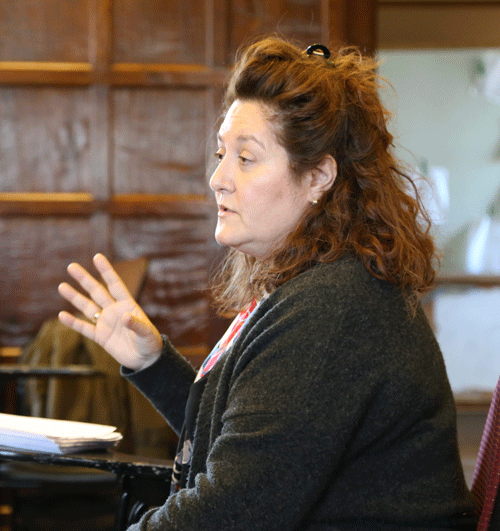 Guest Lecturer: Elizabeth Prodromou, Tufts University
Guest Lecturer: Elizabeth Prodromou, Tufts University
Dr. Elizabeth H. Prodromou is Visiting Associate Professor of Conflict Resolution, teaching in the Program in International Negotiation and Conflict Resolution. She is a Non-Resident Senior Fellow in National Security and International Policy at the Center for American Progress (Washington, DC) and a Non-Resident Fellow at The Hedayah International Center of Excellence for Countering Violent Extremism (Abu Dhabi). Before coming to Fletcher, Prodromou served a diplomatic appointment as Vice Chair and Commissioner on the U.S. Commission on International Religious Freedom (2004-2012), and she was a member of the U.S. Secretary of State’s Religion & Foreign Policy Working Group (2011-2015). Her research interests focus on the intersection of religion, democracy, and security, with particular expertise on religion and geopolitics in the Near East and Southeastern Europe. Published widely in scholarly and policy journals and media, she has been involved in advisory work for international and non-governmental organizations on international religious freedom. Her current research focuses on migration, religion, and security in Europe and Eurasia, as well as on response strategies of religious institutions to state repression. She holds a Ph.D. and an S. M. in political science from MIT. She holds a B.A. in History and IR from Tufts University, an M.A.L.D. from The Fletcher School, and a Ph.D in Political Science from MIT. Prodromou was awarded a Distinguished Service Award by the Tufts University Alumni Association in 2008. She is co-editor of and contributor to Eastern Orthodox Christianity and American Higher Education (2016) and Thinking Through Faith: New Perspectives from Orthodox Christian Scholars (2008).
Readings:
- Human security: a new perspective for Euro-Mediterranean cooperation by Roberto Aliboni and Abdallah Saaf
- Beyond the Paris Attacks: Unveiling the War within French Counterterror Policy by Khaled Beydoun
- The British state ‘security syndrome’ and Muslim diversity: challenges for liberal democracy in the age of terror by Stefano Bonino
- Secular States in a “Security Community”: The Migration-Terrorism Nexus? By Colette G. Mazzucelli
Tuesday, March 7
Latin American Populism: A political trend or a structural social challenge?
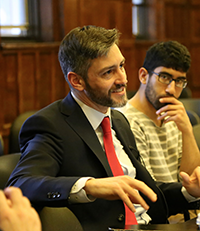 Guest Lecturer: Juan Corvalan, University of Paris
Guest Lecturer: Juan Corvalan, University of Paris
Originally from Buenos Aires, Juan Corvalán is a PhD candidate at Ecole des Hautes Etudes en Sciecnes Sociales (HESS) in France and is also Director of the Fondation Argentine at the Cité International Universitaire de Paris.
Following his MPA at Harvard, Juan continues to be involved in the development of leadership models with the Kennedy School and is one of the founding organizing members of the Adaptive Leadership Alumni Conference and the Adaptive Leadership Network.
Juan holds a law degree from Argentina, and also has postgraduate studies from Sciences Po Paris and the London School of Economics and Political Sciences. He taught a course on Sociology of Law at the law school of Universidad de Buenos Aires, and has more than 10 years of work experience in public sector in various countries (Argentina, France, UK and the US).
Readings:
-
Laclau, E. (2005). On Populist Reason, London – New York: Verso.
- Chapter 4: The ‘people’ and the Discursive Production of Emptiness – Populism
- Chapter 7: The Saga of Populism
- Chapter 8: Obstacles and Limits to the Construction of the ‘People’ – The Return of Peron
- Levitsky, S. (2001). An ‘Organised Disorganisation’: Informal Organisation and the Persistence of Local Party Structures in Argentine Peronism. Journal of Latin American Studies 33, 29-65.
- Levitsky, S. (2001). Organization and Labor-Based Party Adaptation: The Transformation of Argentine Peronism in Comparative Perspective. World Politics 54, No. 1, 27-56.
Listen to the Audio Recording of this Lecture
Thursday, March 9
American Grand Strategy in the Age of Trump
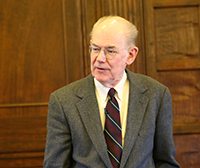 Guest Lecturer: John Mearsheimer, University of Chicago
Guest Lecturer: John Mearsheimer, University of Chicago
John J. Mearsheimer is the R. Wendell Harrison Distinguished Service Professor of Political Science and the co-director of the Program on International Security Policy at the University of Chicago, where he has taught since 1982. He graduated from West Point in 1970 and then served five years as an officer in the U.S. Air Force. He then started graduate school in political science at Cornell University in 1975. He received his Ph.D. in 1980. He spent the 1979-1980 academic year as a research fellow at the Brookings Institution, and was a post-doctoral fellow at Harvard University's Center for International Affairs from 1980 to 1982. During the 1998-1999 academic year, he was the Whitney H. Shepardson Fellow at the Council on Foreign Relations in New York.
Professor Mearsheimer has written extensively about security issues and international politics more generally. He has published five books: Conventional Deterrence (1983), which won the Edgar S. Furniss, Jr., Book Award; Liddell Hart and the Weight of History (1988); The Tragedy of Great Power Politics (2001), which won the Joseph Lepgold Book Prize and has been translated into eight different languages; The Israel Lobby and U.S. Foreign Policy (with Stephen M. Walt, 2007), which made the New York Times best seller list and has been translated into twenty-one different languages; and Why Leaders Lie: The Truth about Lying in International Politics (2011), which has been translated into ten different languages.
He has also written many articles that have appeared in academic journals like International Security, and popular magazines like Foreign Affairs and the London Review of Books. Furthermore he has written a number of op-ed pieces for the New York Times and the Los Angeles Times dealing with topics like Bosnia, nuclear proliferation, American policy towards India, the failure of Arab-Israeli peace efforts, the folly of invading Iraq, and the causes of the Ukrainian crisis.
Finally, Professor Mearsheimer has won a number of teaching awards. He received the Clark Award for Distinguished Teaching when he was a graduate student at Cornell in 1977, and he won the Quantrell Award for Distinguished Teaching at the University of Chicago in 1985. In addition, he was selected as a Phi Beta Kappa Visiting Scholar for the 1993-1994 academic year. In that capacity, he gave a series of talks at eight colleges and universities. In 2003, he was elected to the American Academy of Arts and Sciences.
Readings:
- Transcript: Donald Trump’s Foreign Policy Speech, New York Times, April 27, 2016
- Trump Has Already Blown It, Foreign Policy, March 3, 2017
- Trump’s Grand Strategic Train Wreck, Foreign Policy, January 31, 2017
- The Case for Offshore Balancing, Foreign Affairs, July/August 2016 Issue
Listen to the Audio Recording of this Lecture
Tuesday, March 14
The Middle East: From the Arab Spring to ISIS
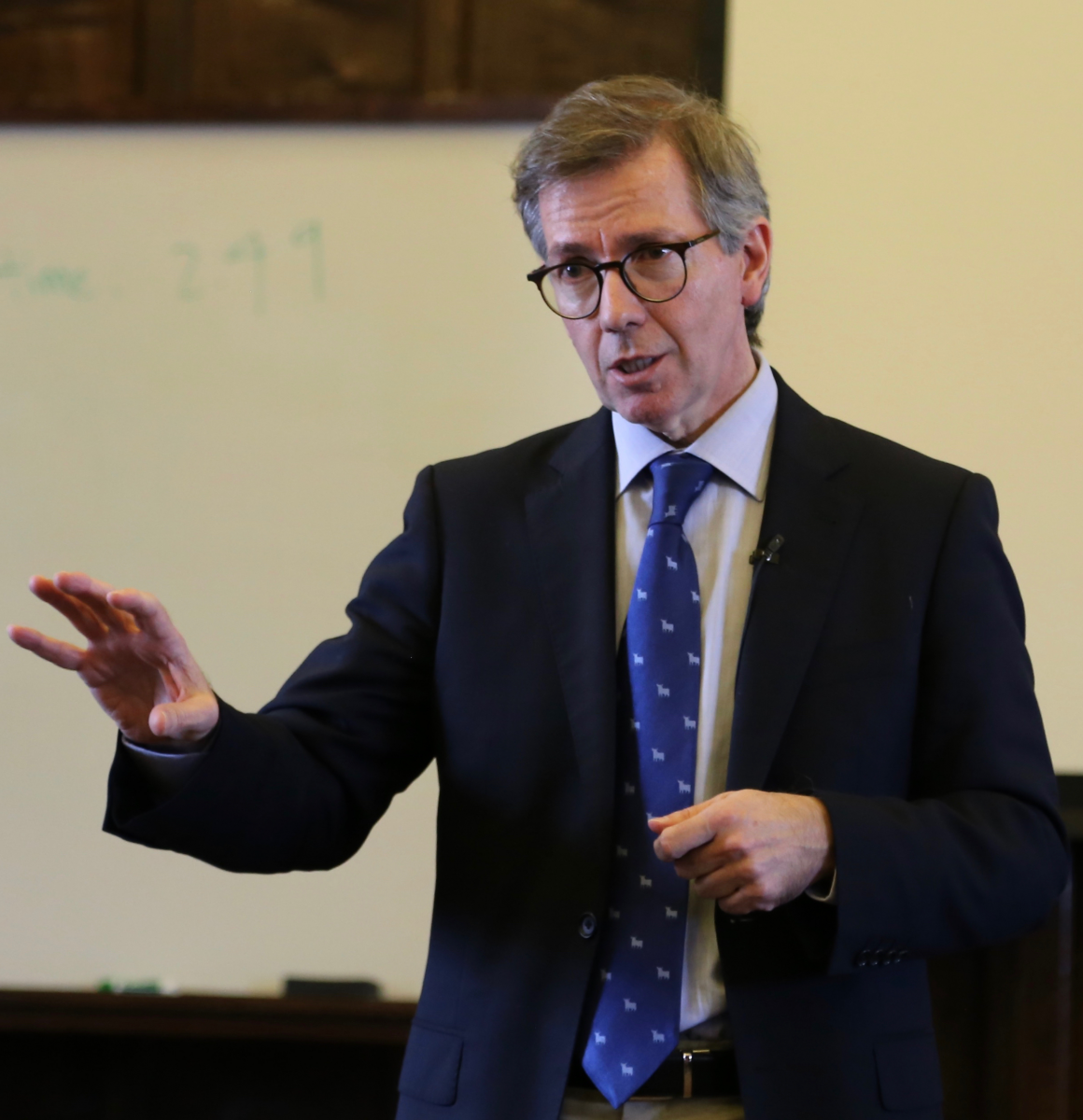 Guest Lecturer: Bernardino Leon, United Arab Emirates Diplomatic Academy
Guest Lecturer: Bernardino Leon, United Arab Emirates Diplomatic Academy
Bernardino León, a Spanish national and a veteran diplomat with more than 25 years’ experience, has held top positions in Spain, the European Union, and the United Nations. In Spain he was Secretary of State for Foreign Affairs from 2004 to 2008, and Secretary General at the Prime Minister Office and G20 Sherpa from 2008 to 2011. He has worked extensively in the Middle East: in 1992 he was posted to Algeria, the first Arab country that tried a transition to democracy, which ended in a coup and a civil war. He played a major role in the European Union team that followed up and supported the Peace Process after the Madrid 1991 Peace Conference and the Oslo Agreements. He was actively involved in Israeli-Palestinian civil society Geneva Agreements. Following the events of the Arab Spring, León conducted after 2011, when he was appointed EU Special Envoy to the Arab Spring countries, crucial negotiations in Libya, Egypt and Tunisia. In 2014 he was appointed United Nations Special Representative of the Secretary General to Libya, where he negotiated the Political Agreement and Unity Government that ended the civil war. He dedicated many efforts to promote dialogue and understanding between the West and Muslim world, and was instrumental in the launch of the UN Alliance of Civilizations. He was involved in civil society initiatives such as the Spanish-Moroccan ‘Three Cultures Foundation’ and in the ‘Barenboim-Said Foundation’. Besides, he has actively participated in the civil society initiative to create the International Criminal Court (promoting it specially in Arab countries) and other initiatives related to Human Rights, like the Spanish initiative against the death penalty, taking up negotiations with the Presidents of Philippines, Togo and Benin to achieve the abolition or moratorium on the death penalty.
He is currently the President of the Emirates Diplomatic Academy (EDA), where he also teaches International Law.
Readings:
- The Arabs: A History, by Eugene Rogan, Basic Books, 2011.
- The New Arab Revolt, CFR-Foreign Affairs, 2011.
- "Tethered by history". The Economist, July 5th 2014.
- Constitution Building: A Global Review (2013), IDEA (Only chapter number 5: “Semi-presidential government in Tunisia and Egypt”, by Sujit Choudhry and Richard Stacey)
- "The Quiet General". Mike Giglio. Newsweek. 16 August 2013
- “Egypt's ‘road not taken’ could have saved Mursi”, REUTERS, Paul Taylor, Jul 17, 2013.
- Libya: “Another chance”. The Economist, Apr 9th 2016.
- POLITICAL AGREEMENT LIBYA
- Kechichian, Joseph A. (September 16, 2011). "A genuine Islamist democrat". Gulf News. Retrieved 18 October 2016.
Thursday, March 16
The Middle East: Politics in a Populist Era
Guest Lecturer: Bernardino Leon, United Arab Emirates Diplomatic Academy
Readings: Same as above
Tuesday, March 21
No Class: Spring Break
Thursday, March 23
No Class: Spring Break
Tuesday, March 28
Syria Simulation – Preparation
Documentary: Cries for Syria
Thursday, March 30
Syria Simulation – Preparation
The Rise of ISIS
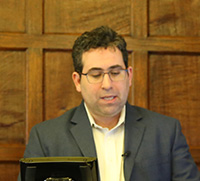 Guest Lecturer: Max Abrahms, Northeastern University
Guest Lecturer: Max Abrahms, Northeastern University
Dr. Max Abrahms’ research focus is international security, especially terrorism. He is assistant professor of political science and public policy at Northeastern University, a member at the Council on Foreign Relations, a visiting fellow at the Observer Research Foundation, a senior fellow at George Washington University’s Center for Cyber and Homeland Security, and a board member at the Center for the Study of Terrorism in Rome and on the journal Terrorism and Political Violence. Abrahms has published in many journals such as International Organization, International Security, International Studies Quarterly, Comparative Political Studies, Security Studies, and Harvard Business Review. Abrahms is also a frequent terrorism analyst in the media, especially on the consequences of terrorism, its motives, and the implications for counterterrorism strategy. Previously, he has been awarded fellowships and financial backing from the Center for International Security and Cooperation at Stanford University, the Empirical Studies of Conflict project at Princeton University and Stanford University, the Dickey Center for International Understanding at Dartmouth College, the Combating Terrorism Center at West Point Military Academy, the Moshe Dayan Center at Tel Aviv University, the economics department at Bar Ilan University, the political science department at Johns Hopkins University, and the Belfer Center at Harvard University.
Tuesday, April 4
No Class: Inquiry Preparation
Thursday, April 6 – Saturday, April 8
Inquiry Simulation
Tuesday, April 11
Governing Emerging Technosciences: The Case of AI
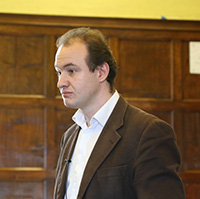 Guest Lecturer: Nicolas Miailhe, Senior Visiting Research Fellow, Program on Science, Technology and Society, Harvard Kennedy School of Government
Guest Lecturer: Nicolas Miailhe, Senior Visiting Research Fellow, Program on Science, Technology and Society, Harvard Kennedy School of Government
Nicolas co-founded “The Future Society at Harvard Kennedy School” in 2014 and has taken a leadership role in developing it since then. Under TFS, Nicolas co-founded in 2015 the “AI Initiative” dedicated to the rise of Artificial Intelligence. A recognized strategist, businessman, thought-leader and social entrepreneur, Nicolas has over ten years of professional experience working at the nexus of innovation, high technology, government, industry and civil society across various continents. Before coming to Harvard, he was Regional Director South Asia at Safran Sagem, the world leader in aerospace, defense and security. In 2012 he convened “People for Global Transformation” which brings together 15 leading voices from across the globe to help shape the 21st century’s discourse on global development and governance, placing the transformative power of technology at the center of the reflection. He is currently a Senior Visiting Research Fellow with the Program on Science, Technology and Society at HKS, and a Fellow with the Institute for Data Driven Design affiliated with the MIT Media Lab. He was previously Research Fellow with the Ash Center for Democratic Governance and Innovation at HKS. His work focuses on the governance of emerging technosciences, urban innovation and civic engagement. An Arthur Sachs Scholar, Nicolas holds a Master in Public Administration from the Harvard Kennedy School of Government. He also holds a Master in Geostrategy and Industrial Dynamics from Pantheon-Assas University in Paris and a BA in Political Sciences from Sciences Po Strasbourg.
Readings:
- “Making the AI revolution work for everyone: The Future Society Report for the OECD
- Civi consultation on the governance of AI: (assingment ahead of the session: read at least 2 post of your choice, react to them on the platform and come prepared to discuss them in class; student posts need not be too long or too polished and can inlude links)
- "Governing the rise of AI... and other transformative emerging technologies"
- "It's time for some messy, democratic discussions about the future of AI"
- "CRISPR Democracy: Gene Editing and the Need for Inclusive Deliberation"
- "Will Democracy Survive Big Data and Artificial Intelligence?"
Listen to the Audio Recording of this Lecture
Thursday, April 13
Populism and its Implications for Global Security
 Guest Lecturer: Monica Duffy Toft, Univeristy of Oxford
Guest Lecturer: Monica Duffy Toft, Univeristy of Oxford
Before joining the Blavatnik School of Government in 2012, Professor Monica Duffy Toft taught at Harvard University’s John F. Kennedy School of Government. While there she directed the Initiative on Religion in International Affairs and was the assistant director of the John M. Olin Institute for Strategic Studies. She was educated at the University of Chicago (MA and PhD in political science) and at the University of California, Santa Barbara (BA in political science and Slavic languages and literature, summa cum laude). Prior to this, she spent four years in the United States Army as a Russian linguist.
Monica’s areas of research include international security, ethnic and religious violence, civil wars and demography. Her most recent books include: Securing the Peace (Princeton, 2011); Political Demography (with Jack Goldstone and Eric Kaufmann, Oxford, 2012); and God’s Century (with Daniel Philpott and Timothy Shah, Norton, 2012).
In addition she has published numerous scholarly articles and editorials on civil wars, territory and nationalism, demography, and religion in global politics. Her article Islamists and Nationalists: Rebel Motivation and Counterinsurgency in Russia's North Caucasus co-authored with Yuri Zhukov was published in the American Political Science Review in May 2015. Her most recent opinion pieces are on religious fundamentalism and women's equality in the Huffington Post and on the importance of identity politics for Iraq's security at Project Syndicate, a column that appeared in 19 publications in five different languages. Monica can also be found on Twitter @monicaduffytoft.
Readings:
- Kaplan, Robert. D. 1994. “The Coming Anarchy,” The Atlantic Monthly, 273 (February 2): 44–76. Also available online.
- Arreguín-Toft, Ivan. 2001. “How the Weak Win Wars: A Theory of Asymmetric Conflict,” International Security, 1 (Summer): 93-128.
- Pinker, Steven. 2011. “Violence Vanquished,” Wall Street Journal, September 24, 2011 and Pinker, Steven. 2014. “Has the Decline of Violence Reversed since The Better Angels of Nature was written?”
- Huntington, Samuel. 1993. “Clash of Civilizations,” Foreign Affairs, 72 (3) (Summer): 22–49.
View the Slides from this Lecture
Listen to the Audio Recording of this Lecture
Tuesday, April 18
Modi and Trump: The Cognitive Neuroscience of Nationalist Populism
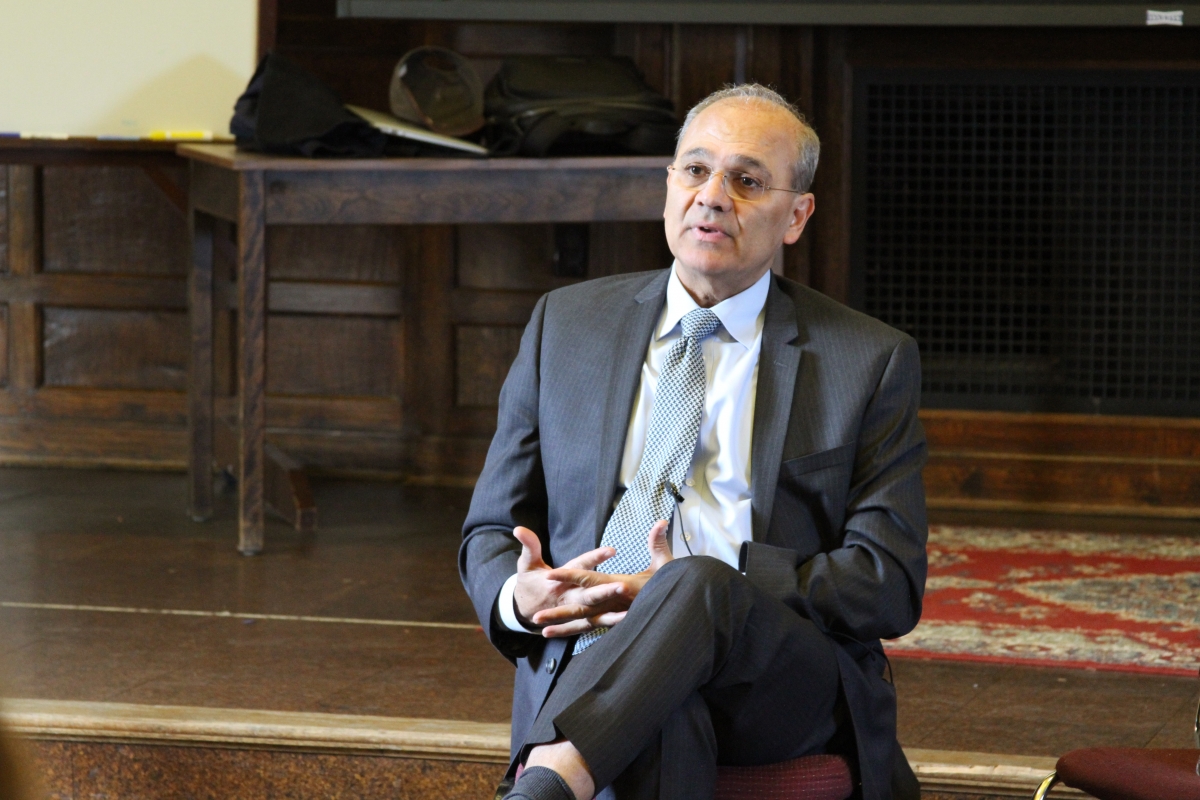 Guest Lecturer: Jamshed Bharucha, Distinguished Fellow, Dartmouth College & President Emeritus, Cooper Union
Guest Lecturer: Jamshed Bharucha, Distinguished Fellow, Dartmouth College & President Emeritus, Cooper Union
Jamshed Bharucha is President Emeritus of Cooper Union, a college located in Manhattan, New York City. He served as the 12th President of Cooper Union from July 2011 through June 2015.
Prior to becoming President of Cooper Union, Bharucha was Provost and Senior Vice President of Tufts University and Professor in the Departments of Psychology, Music and in the Medical School's Department of Neuroscience. Prior to Tufts he was the John Wentworth Professor of Psychological & Brain Sciences and Dean of the Faculty of Arts & Sciences at Dartmouth College, where he received the Huntington Teaching Award. His research is in cognitive psychology and neuroscience, focusing on the cognitive and neural basis of the perception of music. He was Editor of the interdisciplinary journal Music Perception and was a Fellow at the Center for Advanced Study in the Behavioral Sciences. He is a Trustee of Vassar College, where he received the Distinguished Achievement Award from the Alumnae & Alumni of Vassar College.
Readings:
- Nayef Al-Rodhan (2016), “Us versus Them. How neurophilosophy explains our divided politics” World Economic Forum
- Bert N. Baker, Matthijs Rooduijn and Gijs Schumacher (2016), “The psychological roots of populist voting: Evidence from the United States, the Netherlands and Germany”, European Journal of Political Research 55: 302–320.
Listen to the Audio Recording of this Lecture
Thursday, April 20
China and the Future of the Asian Order
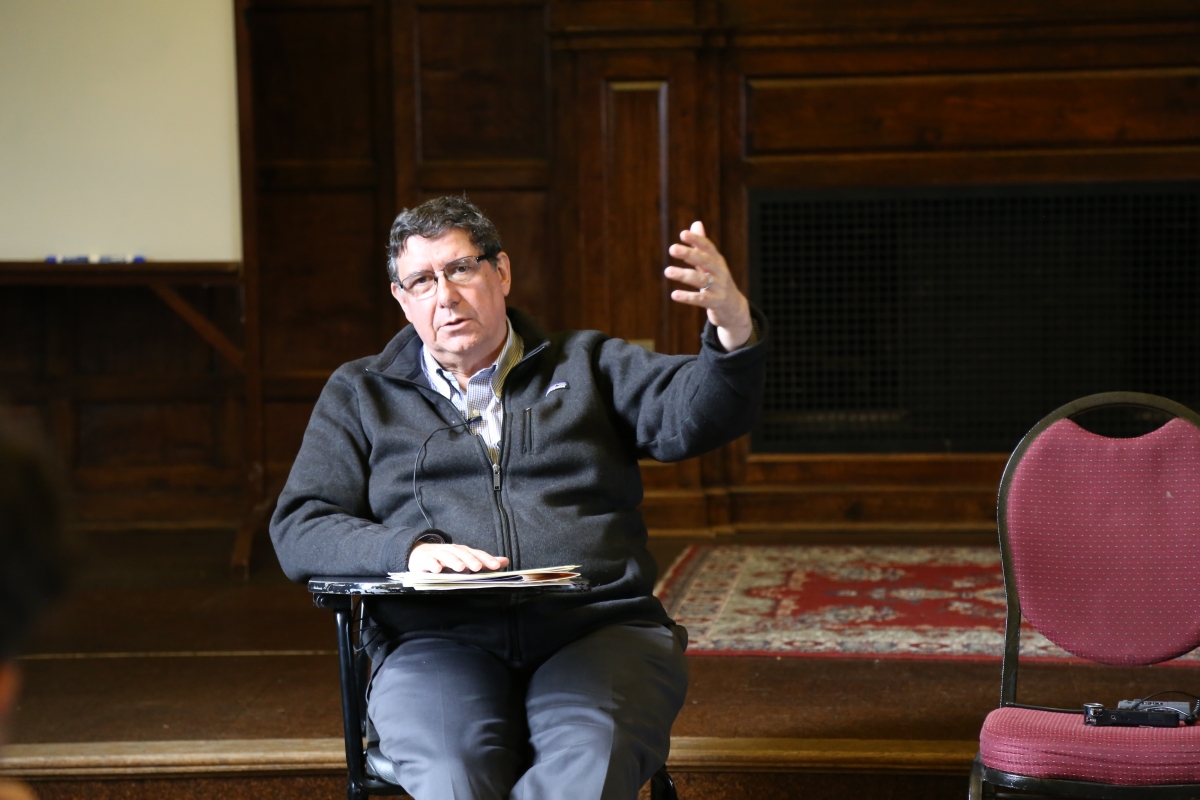 Guest Lecturer: Anthony Saich
Guest Lecturer: Anthony Saich
Anthony Saich is the director of the Ash Center for Democratic Governance and Innovation and Daewoo Professor of International Affairs, teaching courses on comparative political institutions, democratic governance, and transitional economies with a focus on China. In his capacity as Ash Center Director, Saich also serves as the director of the Rajawali Foundation Institute for Asia and the faculty chair of the China Programs, the Asia Energy Leaders Program, and the Leadership Transformation in Indonesia Program, which provide training programs for national and local Chinese and Indonesian officials.
Saich first visited China as a student in 1976 and continues to visit each year. Currently, he is a guest professor at the School of Public Policy and Management at Tsinghua University, China. He also advises a wide range of government, private, and nonprofit organizations on work in China and elsewhere in Asia.
Saich is a trustee member of the National Committee on U.S.-China Relations (2014-), AMC Entertainment Inc., the China Medical Board, and International Bridges to Justice. He is also the U.S. Secretary-General of the China United States Strategic Philanthropy. He sits on the executive committees of the John King Fairbank Center for Chinese Studies, Council on Asia Studies, South Asia Initiative, and the Asia Center, all at Harvard University. He serves as the Harvard representative of the Kennedy Memorial Trust and previously was the representative for the Ford Foundation’s China Office from 1994 to 1999. Prior to this, he was director of the Sinological Institute at Leiden University in the Netherlands.
His current research focuses on politics and governance in post-Mao China, China’s urbanization, rural-urban inequality in China, the interplay between state and society in Asia, and the respective roles they play in the provision of public goods and services at the local level. His most recent books include Chinese Village, Global Market (2012); Governance and Politics of China (Third Edition, 2010); Providing Public Goods in Transitional China (2008); Revolutionary Discourse in Mao’s Republic (with David Apter, 1998); The Rise to Power of the Chinese Communist Party (1996); and China’s Science Policy in the 80s (1989). He has edited books on Philanthropy for Health in China (with Jennifer Ryan and Lincoln Chen, 2014), China's urbanization (with Shahid Yusuf, 2008), HIV/AIDS (with Joan Kaufman and Arthur Kleinman, 2006), and the reform of China’s financial sector.
He holds a Ph.D. from the Faculty of Letters, University of Leiden, the Netherlands. He received his master’s degree in politics with special reference to China from the School of Oriental and African Studies, London University, and his bachelor’s degree in politics and geography from the University of Newcastle, UK. Away from the office, he enjoys time with his two children, movies, and soccer.
Readings:
- Kishore Mahbubani, “ASEAN Still the Critical Catalyst for China’s Future,” East Asia Forum, November 29, 2016
- David M. Lampton, “A Tipping Point in US-China Relations is Upon Us”, May 11, 2015 (available online)
- Xi Jinping, “new Approach for Asian Security Cooperation”, in Xi Jinping: The Governance of China (Beijing: Foreign Languages Press, 2014), pp. 389-96.
Listen to the Audio Recording of this Lecture
Tuesday, April 25
Global Governance in a Change World
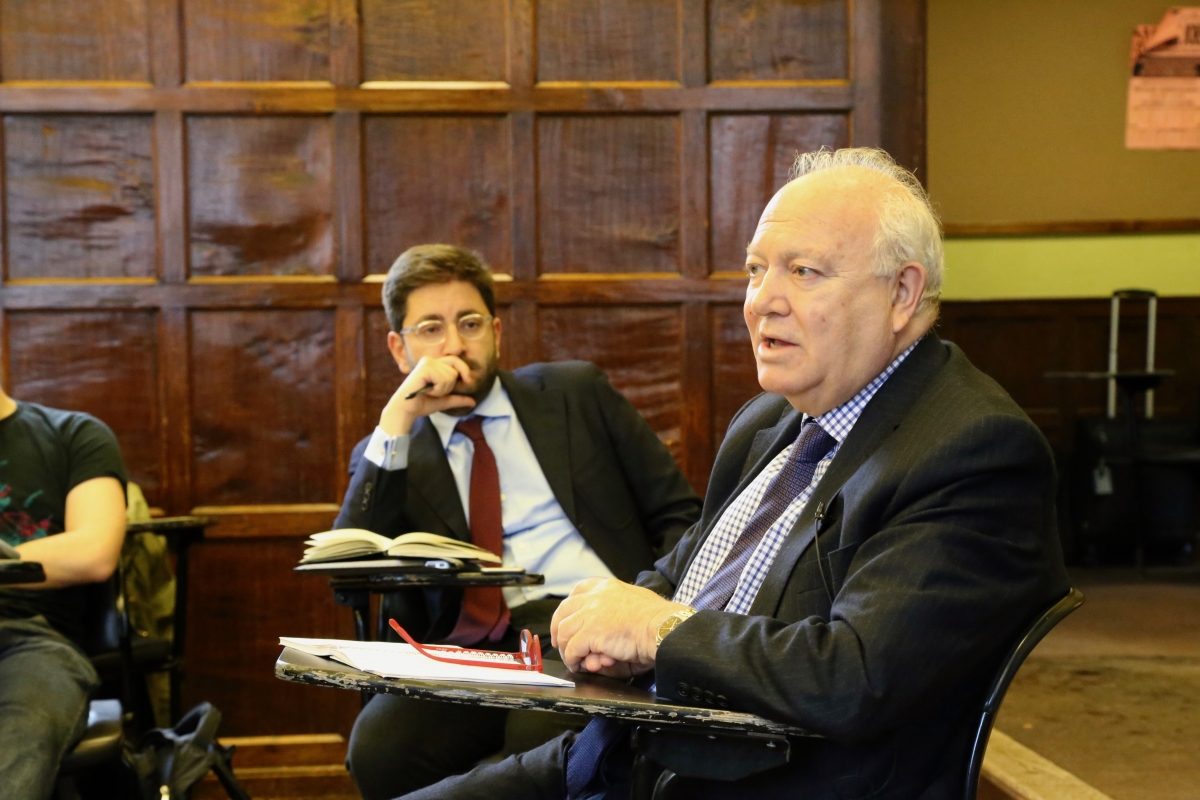 Guest Lecturer: Miguel Ángel Moratinos, Former Foreign Minister of Spain
Guest Lecturer: Miguel Ángel Moratinos, Former Foreign Minister of Spain
Miguel Ángel Moratinos Cuyaubé has committed his professional and political activity to international relationships and development cooperation. He was born in Madrid on the 8th of June 1951 and studied at the Madrid French Lyceum. He graduated in Law and Political Sciences at the University Complutense in Madrid, and then in Diplomatic Studies at the Spanish Diplomatic School. He entered Spain’s diplomatic service in March 1977. He is a father of three and is married to Dominique Maunac.
At the dawn of Spanish democracy, he began his diplomatic career as the head of the Coordination Section for Eastern Europe between 1977 and 1980. At the end of 1980, he was appointed First Secretary of the Spanish Embassy in Yugoslavia and remained there until 1984 and during the last three years there he held the post of chargé d’affaires. From Belgrade he went on to Rabat, this time as a political adviser, remaining there between 1984 and 1987.
With the Mediterranean in mind, he was appointed General Deputy Director for Northern Africa (1987-1991) and then Director of the Institute of Cooperation with the Arab World (1991-1993). After his tenure at the Institute, he was appointed General Director of Foreign Policy for Africa and the Middle East, holding such position between 1993 and 1996, where he took part in the organisation of the historic Middle East Peace Conference in Madrid in 1992. After being Spain’s Ambassador in Israel from July to December 1996, he was appointed by the European Union as EU Special Representative for the Middle East Peace Process, a mission in which he worked from December 1996 to June 2003. During this period, he promoted Peace Agreements and carried out actions on behalf of the EU to foster the Arab-Israeli dialogue and turn the Mediterranean into a region of peace and prosperity.
After these years of intense political and diplomatic activity, he engaged in Spanish politics and was elected member of Parliament on the lists of the Spanish Socialist Workers’ Party (PSOE) for the constituency of Córdoba. On the 18th of April 2004, he was appointed Minister of Foreign Affairs and Cooperation. In his term at the head of the department, he held the presidency of the United Nations Security Council and the chairmanships-in-office of the Organisation for Security and Cooperation in Europe (OSCE), the Council of Europe and the Council of the European Union. He fostered the implementation of the Treaty of Lisbon and the Treaty on the Functioning of the European Union.
As the Minister of Foreign Affairs and the first Minister of Cooperation of the Spanish democratic period, he fostered effective multilateralism, the Alliance of Civilisations, the Group of Friends for the Reform of the United Nations and contributed to the creation of innovative programmes for development, healthcare and women within the United Nations system. He promoted new programmes and funds for water and sanitation in Latin American development countries. In his term as Minister, he doubled Official Development Assistance funds and placed Spain as the sixth donor in the United Nations system.
Upon termination of his office as Minister, on the 20th of October 2010, he joined parliamentary activity until November 2011. In that period, he ran to be elected Director-General of the United Nations Food and Agriculture Organization (FAO) and targeted his international action towards the struggle against hunger and poverty, the promotion of food security and the right to food.
In January 2012, he joined the team of the Global Dry Land Alliance in Qatar and promoted this international treaty for food security in more than 15 member countries of all continents. From 2012 to 2013 he was member of the high level advisory panel of the president of the 67th UN General Assembly.
During his career he has been awarded numerous distinctions, awards and decorations acknowledging his political and diplomatic career path. In the academic sphere, the undertakings of Miguel Ángel Moratinos have been acknowledged with honorary doctorates by the Universities of Granada, Saint Petersburg or Malta, as well as by the Ben-Gurion University, in Israel, and the Al-Quds University, among others.
He is also a regular lecturer in several international institutions and forums, as well as a prolific writer of articles in Spain and abroad. Since 2011, he teaches at Sciences Po Paris.
Actually he promotes the signature of the International Treaty for a Global Dry Land Alliance in Qatar, he is Honorary Chairman of the CIRSD Board of Advisers (Center for International Relations and Sustainable Development), Senior Advisor of Sustainable Development Solutions Network of the Earth Institute at Columbia University, member of the Leadership Council of the UN Sustainable Development Solutions Network (SDSN) and president of the SDSN Spanish Network, REDS.
Listen to the Audio Recording of this Lecture
Listen to Moratinos' lecture on Peace in the Middle East
Thursday, April 27
Final Lecture: The World of Tomorrow
Lecturers: Manuel Muñiz, Tufts University & Karl Kaiser, Harvard University
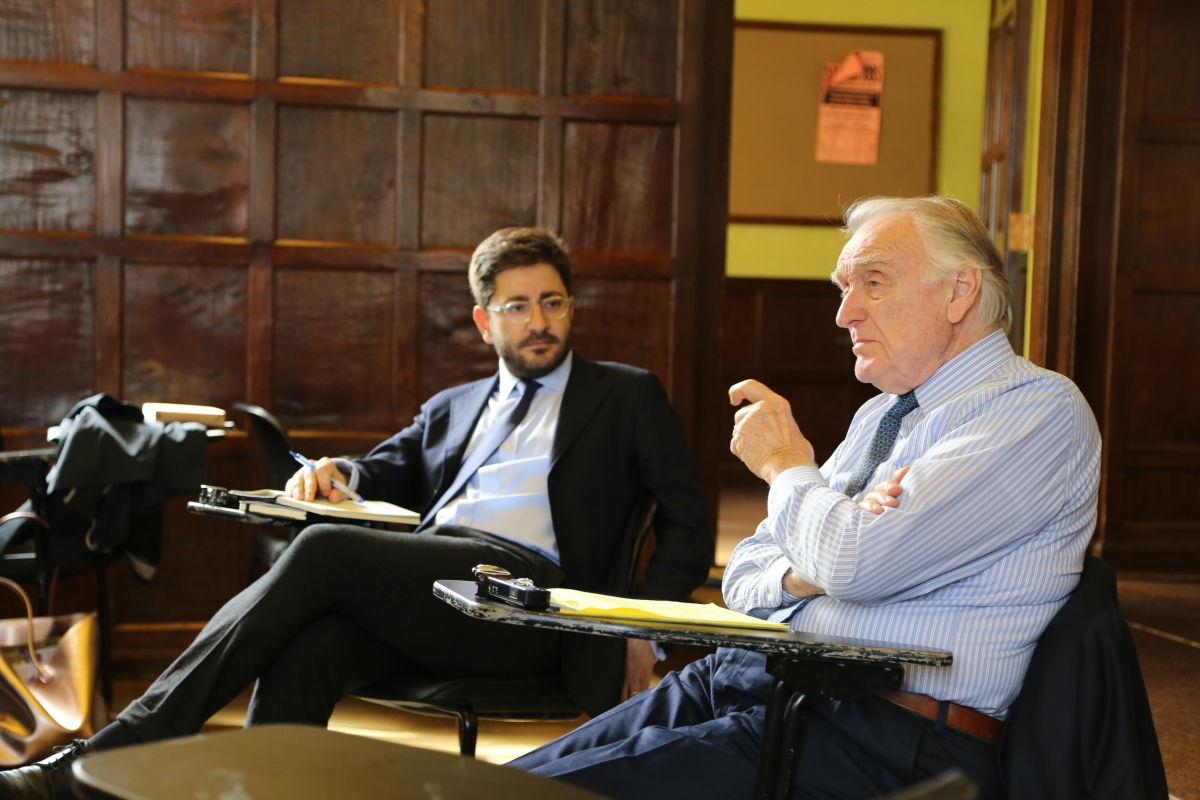
Listen to the Audio Recording of this Lecture
Friday, May 12
Final Papers (policy memo) due

